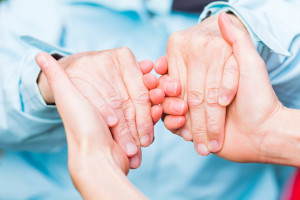The following piece was written by faculty in CSU’s Department of Human Development and Family Studies.
Tune into any sports channel, and it doesn’t take long before someone is discussing the issue of domestic violence. Attention to recent incidents by sports stars has brought the term to the forefront, but domestic violence reaches far beyond the rich and famous. According to the National Coalition Against Domestic Violence 20 people are victims of intimate partner violence every minute in the United States.
 The most damaging forms of domestic violence and emotional abuse are the behaviors used by one person in a relationship to control the other. It is important to recognize that power and control tactics are not always physical – they can be:
The most damaging forms of domestic violence and emotional abuse are the behaviors used by one person in a relationship to control the other. It is important to recognize that power and control tactics are not always physical – they can be:
- financial, such as restricting a partner’s use of money or resources,
- social, such as isolating one’s partner from family and friends and/or
- emotional, for example, using one’s words to harm the self-efficacy and empowerment of another.
Partners may be married or not married; heterosexual, gay, or lesbian; living together, separated or dating. Contrary to popular belief, research shows that women are in greatest danger of violence after they have left an abusive partner.
President Barack Obama has proclaimed October as National Domestic Violence Awareness Month, stating, “We reaffirm our dedication to forging an America where no one suffers the hurt and hardship that domestic violence causes — and we recommit to doing everything in our power to uphold the basic human right to be free from violence and abuse.”
Colorado State University is addressing the issue of domestic and sexual violence, not just during October but year-round, through initiatives like the Reframe campaign.
“Sexual violence is a male issue, and men can end it,” President Tony Frank said at the Sept. 16 Fall Address. “It has no place at Colorado State University. So I’m asking each one of you to join me. Join me in ‘It’s on Us,’ join me in ‘Reframe.’ Join me in standing up and speaking out. Let’s end the silent culture that allows this disease to hide in the dark places where it likes to live. We can end sexual violence — not someday, not tomorrow, let’s end it now.”
Where to get help
If you have concerns that you or someone you know is experiencing domestic violence or emotional abuse, get help, but be safe. If someone has reached out to you about violence or abuse in their relationship, it is important that you honor their story and that you do not try to:
- minimize, for example, “That doesn’t sound that bad,” or “At least s/he doesn’t hit you,”
- deflect, for example, “Can we talk about something else?” or
- disregard these statements, saying things such as “But s/he seems so nice, I’m sure you’re just overacting.”
When someone reaches out to you, their account should be taken seriously; however, sometimes it can be difficult to know who to turn to or how to access help for yourself or others. Here are some local resources:
- On the CSU Campus, the following resources can provide support and guidance:
- CSU Victim Assistance Team (970) 492-4242
- Women and Gender Advocacy Center (970) 491-6384
- Center for Family & Couple Therapy (970) 491-5991
- CSU Counseling Services (970) 491-6053
- CSU Health Network (970) 491-7121
- In the Fort Collins area, call Crossroads Safehouse for support and information.
- 24/7 Helplines: 970-482-3502
- 1-888-541-SAFE (7233)
- Call the National Domestic Violence Hotline 1-800-799-SAFE (7233)
- The U.S. Department of Housing and Urban Development offers a brochure with advice for victims, abusers, as well as friends and family members: http://col.st/ARe0p
During the month of October, consider getting involved to support the cause against domestic violence:
- Donate: There are a number of national organizations dedicated to ending domestic violence. A list of national domestic violence organizations to which you can dedicate your time or money can be found at: http://col.st/RX6bN
- Volunteer: Locally, Crossroads Safehouse, crossroadssafehouse.org, offers free safe housing, advocacy, legal assistance, transitional housing, food, clothing and education for over 500 residents annually. They have ongoing need not only for financial support, but direct and non-direct service volunteers.
By Stephanie Seng, Toni Zimmerman, Shelley Haddock, and CK Kemp, faculty in the Marriage and Family Therapy Program in the Colorado State University Department of Human Development and Family Studies. CSU’s Center for Family and Couple Therapy is affiliated with the MFT Program and provides high-quality therapy services to families, couples, individuals, adolescents, and children. The CFCT offers services to all members of the Larimer County community, as well as to students, faculty, and staff on campus. For more information, see www.cfct.chhs.colostate.edu.